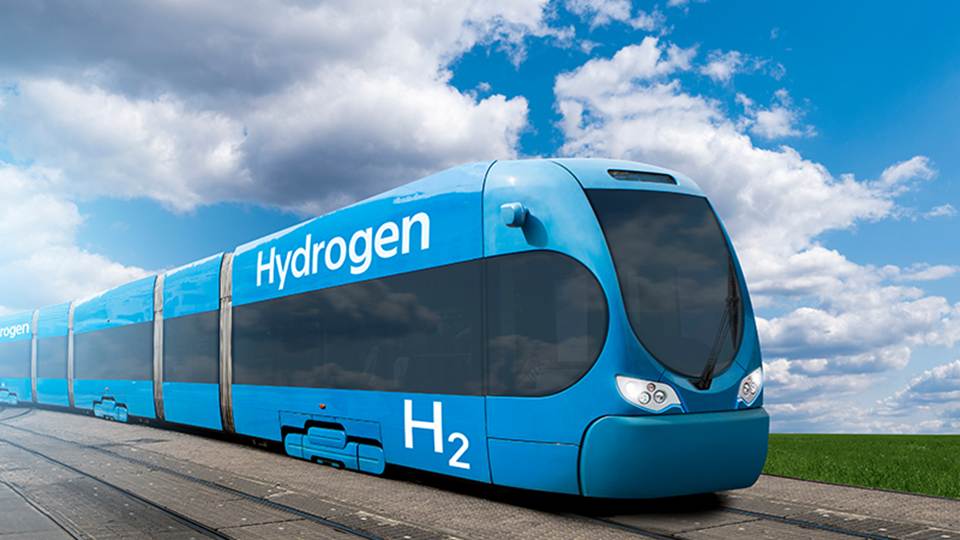India, in recent times, has taken a great leap forward in the direction of development of public mobility. Be it bus, airplane, metro rail or train, in every mode of travel, the government has taken considerable steps. Similarly, considering the vast and pan India presence of railways, the government has given special focus to the train mobility. From the construction of bullet trains to universal electrification of railway tracks, the government is focused on enhancing the rail infrastructure in the country.
Hydrogen-powered trains in India
In an update on the Indian Railways’ future plans, Railways Minister Aswhini Vaishnaw stated yesterday that India is manufacturing hydrogen-powered trains, which will be ready in 2023.
Hydrogen-powered train to be ready in India next year: Railway Minister Ashwini Vaishnaw
Read @ANI Story | https://t.co/mPB0ht443K#AshwiniVaishnaw #IndianRailways #RailwayMinister pic.twitter.com/eWoCMYmRLD
— ANI Digital (@ani_digital) September 15, 2022
Speaking at SOA University in Bhubaneswar, he added that working on the Gati Shakti terminals policy, Indian Railways is trying to connect the country’s backward areas through the railway network.
On Vandebharat Express he said, “the Vandebharat Express the Semi High speed and one of the fastest trains are developed indigenously with in-house technology in India and the train has been running smoothly without any major breakdown for the last two years”.
“It is notable that the maximum speed of the third Vandebharat train is 180 kilometres per hour. It reached 0-100 kmph in 52 seconds as compared to 55 seconds taken by the bullet train. The first generation Vande Bharat trains reach 0-100 kmph in 54.6 seconds and have a maximum speed of 160 kmph”, he added.
Ballard To Power India’s First Hydrogen Trains
The announcement was made in accordance with Indian Railway’s contract with Hyderabad-based Medha Servo Drives for the conversion of diesel power train to hydrogen fuels in May 2022. In addition, the contract has also planned to launch hydrogen fuel cell-based technology for narrow gauge locomotives in Kalka-Shimla section.
Prior to the Minister’s statement, Ballard Power Systems, a multinational corporation specialising in alternative energy technology, announced its partnership with Indian Railways in early September.
BC-based Ballard Power Systems announced they will be powering India's first hydrogen trains!
BC companies are leading the way in #cleantech & #hydrogen innovation here in 🇨🇦 and around the 🌎https://t.co/rHApYEjG1S pic.twitter.com/W6XTNN2qIm
— Ravi Kahlon (@KahlonRav) September 13, 2022
In its press release, the company stated that they have received a fuel cell module order from Medha Servo Drives, a leading rail system integrator, who has been contracted by Indian Railways to develop India’s first hydrogen powered trains.
Furthermore, two retrofitted diesel-electric commuter trains will integrate 8 units of 100 kW FCmove-HD +, Ballard’s latest fuel cell technologies, which offers improved efficiency and power density than previous module generations.
In order to achieve a net zero carbon target, India contracted with Medha Servo Drives for hydrogen powered trains. The Ballard Powers are expected to deliver the fuel cell module by 2023, with trains scheduled to hit the rails by 2024. Indian Railways has also planned for additional retrofitting of trains.
David Mucciacciaro, Ballard Chief Commercial Officer, informing the same said, “Our progress in decarbonizing the rail market is just beginning, as we work with leading rolling stock manufacturers, integrators and operators globally. This announcement with Medha exemplifies the growing need and progress being made to decarbonize global mobility. We are excited to grow our fuel cell business in India, and to power the first hydrogen powered, zero emission passenger trains in the Indian market”.
Also Read: Vande Bharat Express creates punctuality record
Hydrogen Is the Future
It is pertinent to note that up until now, Germany is the only country in the world that has developed hydrogen-powered passenger trains. Reports suggest that French manufacturer, Alstom, would help in developing 14 trains with hydrogen fuel cells, which would provide zero emission mobility.
Hydrogen-based cells outperform other energy sources in terms of efficiency, range, storage, and availability.
Hydrogen-based fuels deliver ten times the energy to weight ratio of any other source. Hydrogen-powered vehicles are more efficient, have a higher energy storage density, are lighter, and take up less space.
Considering hydrogen usage, in February 2022, the Government of India had released its Green Hydrogen Policy under the National Hydrogen Mission. The aim is to facilitate the transition from fossil fuel to Green Hydrogen as energy carriers. The Policy envisages creation of a parallel economy of hydrogen-based fuel and the following provisions have been made in the policy to achieve the target.
- Hydrogen to be produced through electrolysis of water using renewable energy, which will be called Green Hydrogen.
- Waiver in inter-state charges for 25 years
- Connectivity shall be granted on a priority level for the generation and manufacturing of Green Hydrogen
- Land in Renewable Energy Parks can be allotted for the purpose
- The government will propose to set up Manufacturing Zones
- Single Portal for all statutory clearances
On the same line in August this year, the government has launched India’s indigenously developed the hydrogen fuel cell bus, which was developed in collaboration of Council of Scientific and Industrial Research (CSIR) and KPIT Private Limited.
VIDEO: Inspired by PM Sh @NarendraModi's National Green Hydrogen Mission, unveiled India's first indigenously developed Hydrogen Fuel Cell Bus developed by KPIT-#CSIR at #Pune, supported by Union Ministry of Science & Technology. pic.twitter.com/pNtEj9h5xw
— Dr Jitendra Singh (मोदी का परिवार) (@DrJitendraSingh) August 21, 2022
Considering the vast track line and presence of Indian Railways in the country, adoption of hydrogen as the fuel is bound to completely change the economic and environmental scenario.
This clean fuel will help in the global fight against climate change. Furthermore, clean hydrogen fuel and its added benefits would aid in the transformation of India’s mobility system.
Support TFI:
Support us to strengthen the ‘Right’ ideology of cultural nationalism by purchasing the best quality garments from TFI-STORE.COM
